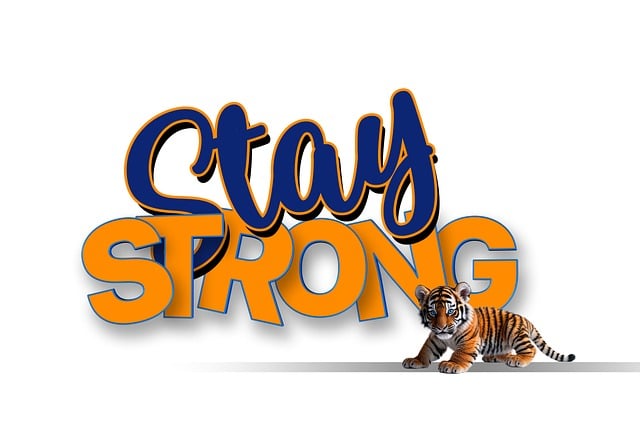Group Support Networks: Fostering Recovery for Veterans Through Accountability and Community
Returning veterans struggling with substance abuse face unique challenges, which specialized substan…….
Over 15% US adults have used prescription painkillers not prescribed to them.
Substance abuse rehabilitation programs specifically tailored for veterans have become a critical component in addressing the unique challenges faced by this demographic group. These programs are designed to help veterans overcome substance use disorders, often exacerbated by the traumas and stressors associated with military service. The focus on veteran-specific rehabilitation is not merely an act of compassion but a strategic approach to improving overall well-being, reducing social costs, and fostering successful reintegration into civilian life. This article aims to provide an in-depth exploration of substance abuse rehabilitation programs for veterans, covering various aspects from definition and history to global trends, economic considerations, technological innovations, policy frameworks, challenges, case studies, and future prospects. By delving into these topics, we aim to illuminate the significance and potential impact of such programs on a global scale.
Substance abuse rehabilitation programs for veterans are comprehensive, specialized services aimed at helping individuals who have served in the military address and overcome substance use disorders (SUDs). These programs typically include a combination of medical, therapeutic, and social support services tailored to meet the unique needs of veterans. The core components often encompass:
The concept of substance abuse rehabilitation for veterans has evolved over the years, reflecting changes in society’s understanding of mental health and addiction. Historically, military organizations have struggled to address these issues due to stigma and a focus on physical injuries. However, increased recognition of the link between trauma and substance abuse, along with advancements in evidence-based treatments, has led to more specialized programs.
The veterans’ affairs sector gained significant momentum post-World War II, leading to the establishment of dedicated facilities and services for veterans’ mental health needs, including substance abuse treatment. The 1980s and 1990s saw a proliferation of veteran-specific rehabilitation centers as the U.S. military’s involvement in conflicts like Vietnam and the Gulf War highlighted the need for targeted support. Today, these programs play a vital role in helping veterans navigate the transition from military to civilian life while addressing substance abuse issues.
Substance abuse rehabilitation programs for veterans have garnered international attention due to their potential to improve lives and reduce social costs associated with untreated SUDs. Many countries are adopting or adapting these models to meet the unique needs of their veteran populations, especially those who have experienced combat-related trauma.
The global market for substance abuse rehabilitation services is influenced by factors such as aging veteran populations, increasing awareness of mental health issues, and rising healthcare expenditure. In the U.S., for instance, the number of veterans eligible for care has been steadily growing, driving demand for specialized services.
Private equity firms, non-profit organizations, and government agencies are key investors in substance abuse rehabilitation programs for veterans. The focus is often on long-term cost savings associated with reduced crime rates, improved job retention, and decreased reliance on public welfare systems among those who complete treatment successfully.
These programs contribute to economic stability by:
Technology has revolutionized substance abuse rehabilitation, offering new tools and approaches:
The integration of artificial intelligence (AI), machine learning, and wearable technology holds promise for more precise, individualized treatments. These technologies can provide real-time feedback, predict relapse risks, and offer tailored interventions. Additionally, advancements in neuroscience research may lead to novel pharmacological treatments, further enhancing rehabilitation outcomes.
Substance abuse rehabilitation programs for veterans are guided by a web of policies and regulations that vary across jurisdictions:
Policies and regulations shape program design, funding allocation, access to care, and quality assurance. For example, the U.S. VA’s policies have led to the development of evidence-based programs like the “Psychoeducation and Coping Skills Training” (PECST) model, which focuses on building resilience and coping mechanisms. International agreements encourage countries to adopt best practices, fostering innovation and improved outcomes.
Despite their importance, substance abuse rehabilitation programs for veterans face several challenges:
Addressing these challenges requires multifaceted approaches:
The U.S. Department of Veterans Affairs (VA) operates a network of residential rehabilitation centers, offering intensive, long-term treatment programs for veterans with severe SUDs and co-occurring disorders. The Pecos Valley Veterans Health Care System in New Mexico serves as an exemplary model:
In Australia, the Department of Veterans Affairs (DVA) funds the Veterans’ Community Rehabilitation program, which focuses on community-based support:
The British National Health Service (NHS) has implemented the Veteran’s Mental Health (VMH) service, offering specialized care through a network of mental health centers:
The future of substance abuse rehabilitation programs for veterans holds promising prospects:
To capitalize on these trends, stakeholders should:
Substance abuse rehabilitation programs for veterans represent a critical investment in the well-being of current and former military personnel. These programs play a pivotal role in addressing the unique challenges faced by veterans, helping them overcome addiction, process trauma, and successfully reintegrate into civilian life. As global awareness and understanding of these issues grow, so does the need for specialized, evidence-based care. By embracing technological advancements, fostering collaboration, and advocating for policy changes, we can enhance the accessibility and effectiveness of these programs, ultimately improving lives and strengthening communities.
Q: What are the common barriers to accessing substance abuse rehabilitation for veterans?
A: Barriers include stigma associated with addiction, lack of awareness about available services, transportation issues, particularly in rural areas, and financial constraints. Co-occurring mental health disorders and past traumatic experiences can also hinder access.
Q: How does cultural sensitivity impact veteran-specific rehab programs?
A: Cultural sensitivity is crucial as military cultures often have unique norms and values. Tailoring programs to reflect these differences enhances engagement and effectiveness. For example, indigenous veterans may benefit from traditional healing practices integrated into rehab.
Q: What role does family support play in a veteran’s recovery?
A: Family support is vital for long-term recovery. Many rehab programs involve family therapy to address dynamics that may contribute to substance abuse and to build a supportive network for ongoing recovery.
Q: How can technology improve outcomes in veteran rehab?
A: Technology offers remote access to care, mobile interventions, and digital tracking tools for self-management. AI-powered systems can personalize treatment plans, while VR therapy provides immersive exposure therapy for trauma-related issues.
Q: What policies are essential for supporting substance abuse rehabilitation for veterans?
A: Key policies include ensuring adequate funding, expanding access to care, protecting privacy during treatment, and integrating these services within the broader healthcare system. International agreements promoting best practices also contribute to improved standards of care.

Returning veterans struggling with substance abuse face unique challenges, which specialized substan…….

Substance abuse among veterans is a complex issue rooted in unique service experiences and trauma, r…….

Substance abuse rehabilitation programs tailored for veterans prioritize boundary setting as a corne…….

Unhealthy relationships exacerbate PTSD, depression, and substance abuse in veterans, highlighting t…….

Yoga therapy emerges as an effective complement to substance abuse rehabilitation programs specifica…….

Veterans facing substance abuse challenges require specialized rehab programs addressing complex co-…….

Substance abuse rehabilitation for veterans is a specialized field addressing unique challenges like…….

Substance abuse rehabilitation programs tailored for veterans integrate crisis management and trauma…….

Trauma-informed care revolutionizes veteran substance abuse rehab by focusing on emotional safety an…….

Withdrawal symptoms can be severe for veterans in early sobriety, requiring specialized support. Eff…….